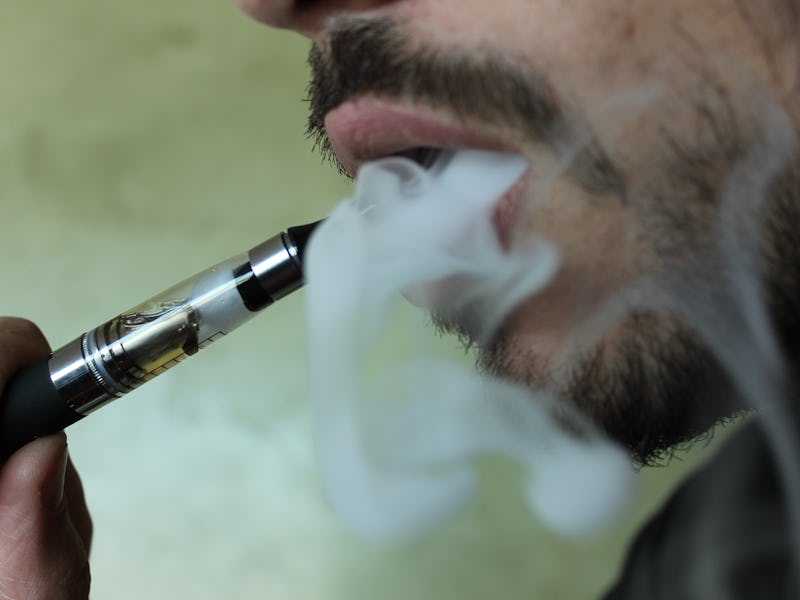Tobacco Industry-Funded Scientists Say New 'Heated' Tobacco Is Safer
But other researchers aren't so sure.

We all know smoking is less safe than not smoking. And while e-cigarettes might be safer than smoking tobacco, there’s still not enough research to say for sure how safe it is — if at all. That being said, the tobacco industry is attempting to capitalize on this small degree of uncertainty with a new type of tobacco that’s heated, not burned, thereby producing less smoke. The new product bears a friendly-sounding name: glo™.
In a series of papers published Wednesday in the journal Regulatory Toxicology and Pharmacology, scientists at British American Tobacco found evidence that vapor from glo, which functions by heating tobacco to vaporize nicotine, delivers 90 percent fewer toxicants than smoke does. The scientists say this evidence supports the idea that tobacco heating products “could have the potential to be a reduced risk product compared to cigarettes.”
So far, there have only been a handful of studies on the health effects of heat-not-burn tobacco products that have been conducted by scientists outside of the tobacco industry. One of those studies, published by researchers from the Department of Environmental Health in Japan (where heat-not-burn tobacco is increasingly popular) showed that the smoke from a Philip Morris heat-not-burn device called iQOS still contained many of the toxic compounds still present in regular combustion cigarettes.
This image compares a filter that captured vapor from a glo (top) to one that captured smoke from a conventional cigarette (bottom). It creates the illusion that glo is a safe product.
It goes without saying that the findings of this tobacco industry-funded study should be approached with some skepticism. This doesn’t necessarily mean that the scientists fudged their results to make up some misleading data, but it’s not a stretch to say that, more often than not, industry-funded research — whether it’s the drug industry, the food industry, or the tobacco industry — finds evidence that supports its own profit motives.
The tobacco industry has a long and remarkably successful history of funding scientific research that showed how safe smoking is, which delayed regulations for decades. Two major tobacco industry-funded scientific research groups, the Council for Tobacco Research and the Center for Indoor Air Research, quietly influenced the scientific literature regarding smoking and secondhand smoke until they were disbanded as a condition of the master settlement agreement between the U.S. tobacco companies and the U.S. state attorneys general in 1998. Even after that time, though, tobacco companies continue to funnel money into non-profits that find favorable results for the industry.
Scientists are still unsure whether vaping tobacco is safer than smoking it. They know even less about new heat-not-burn tobacco products.
If you like smoking but are concerned about your health, there are a number of options on the market that pose less of a risk to your life. Nicotine replacement products like patches and gum can help you quit smoking without creating new hazards to your health. E-cigarettes may be a little safer, but they’re still bad for you.
If you liked this article, check out this video on the totally inaccurate portrayals of weed in TV and movies.